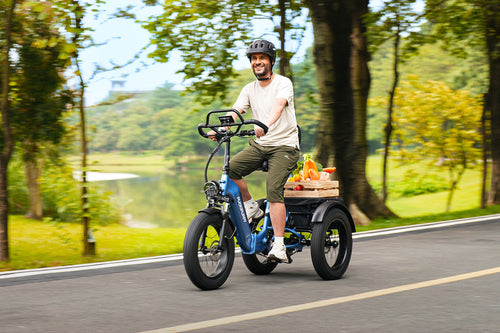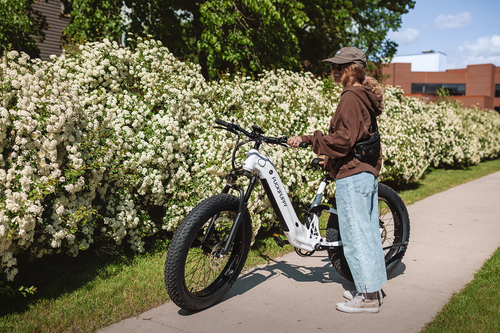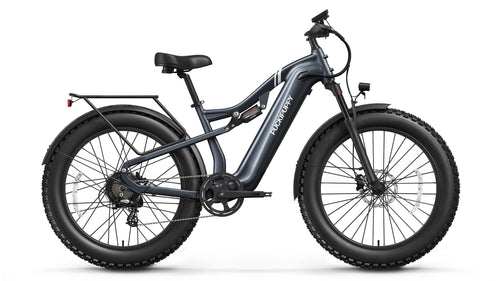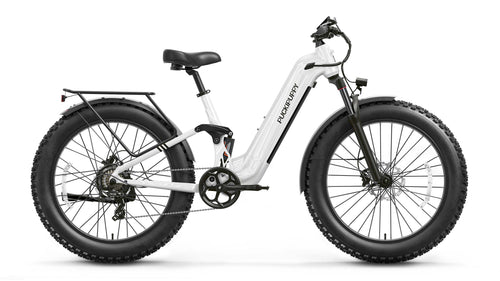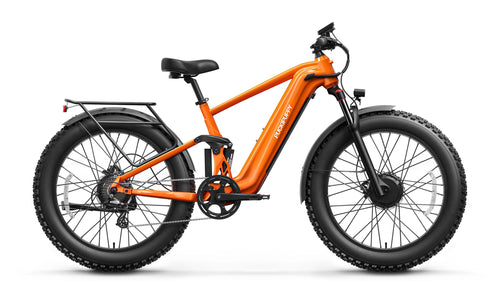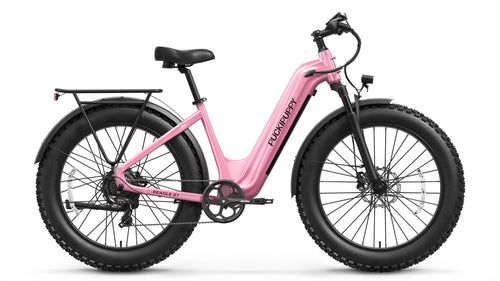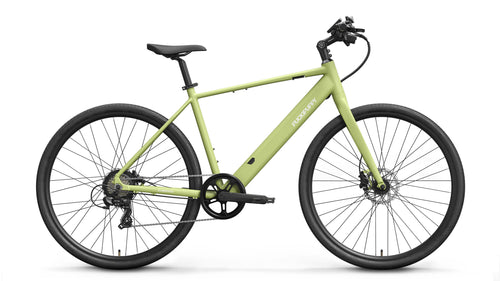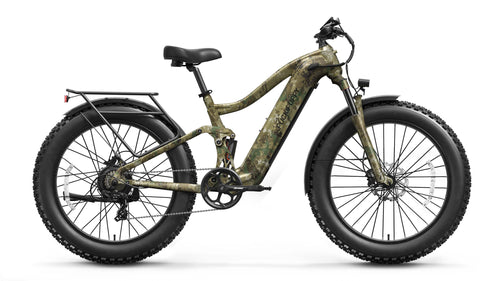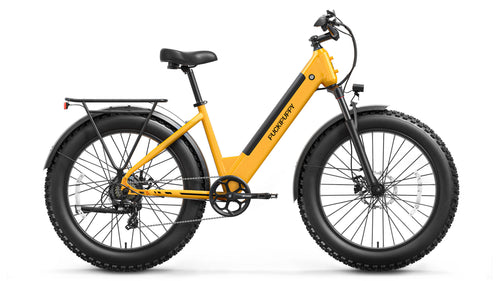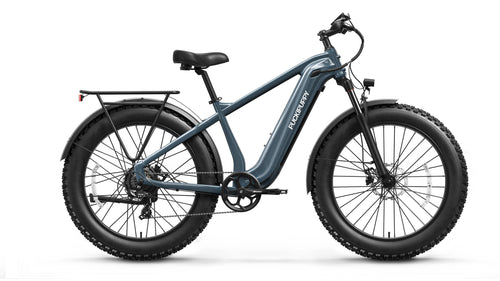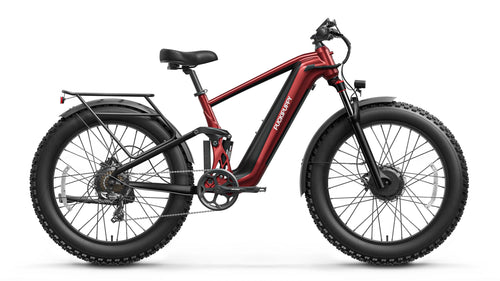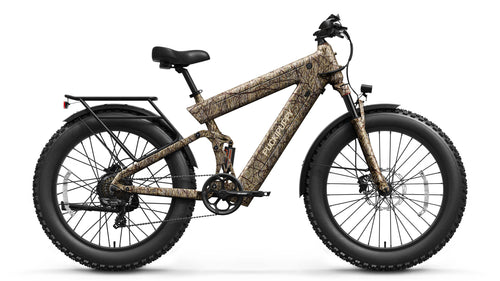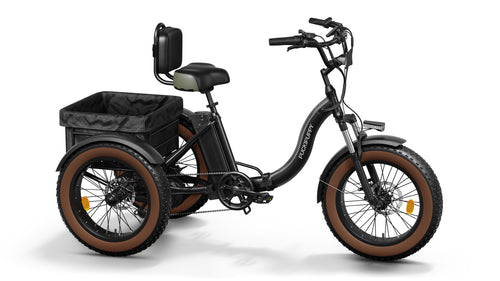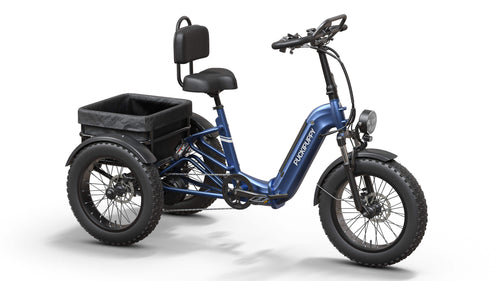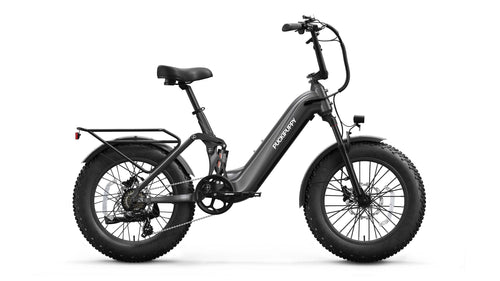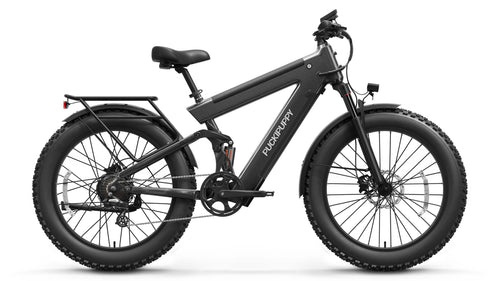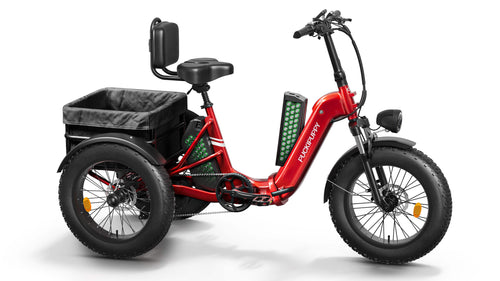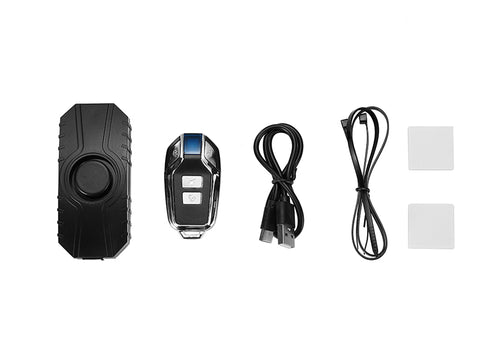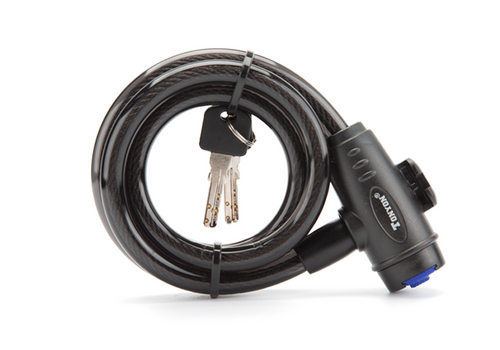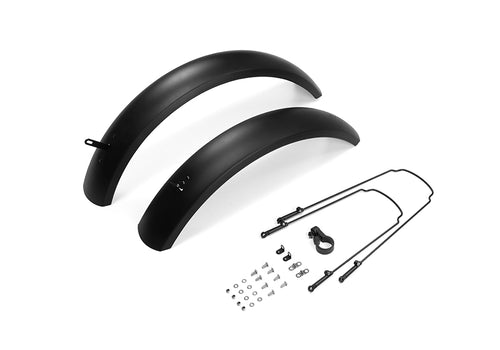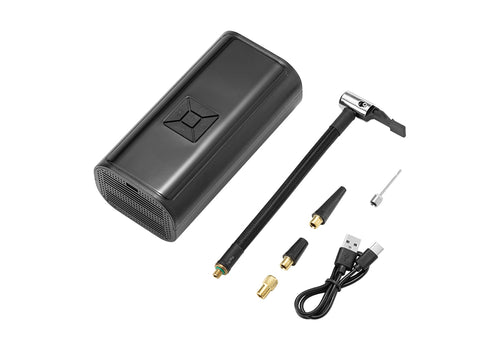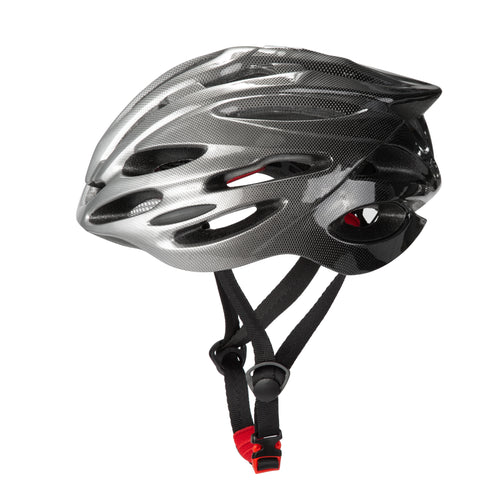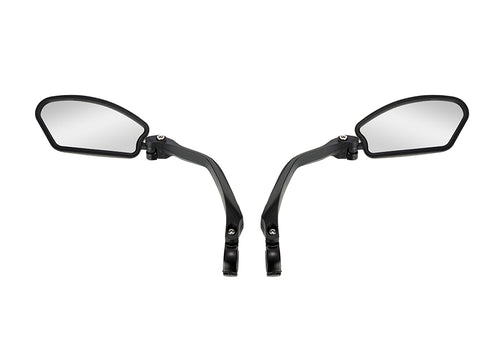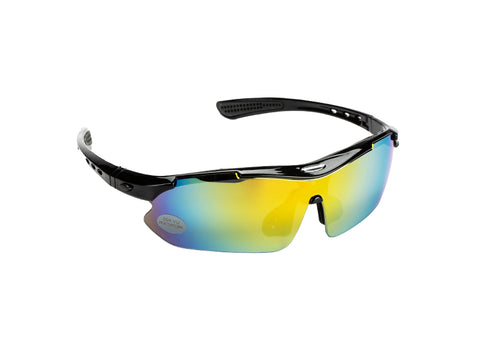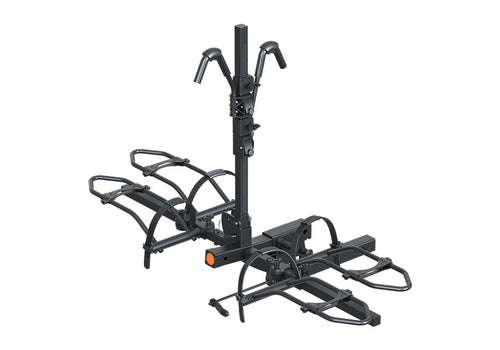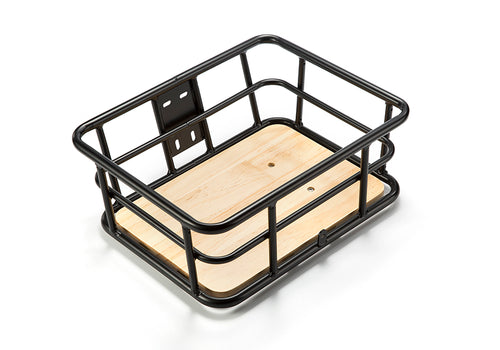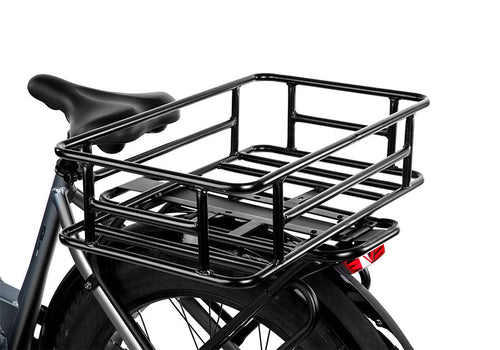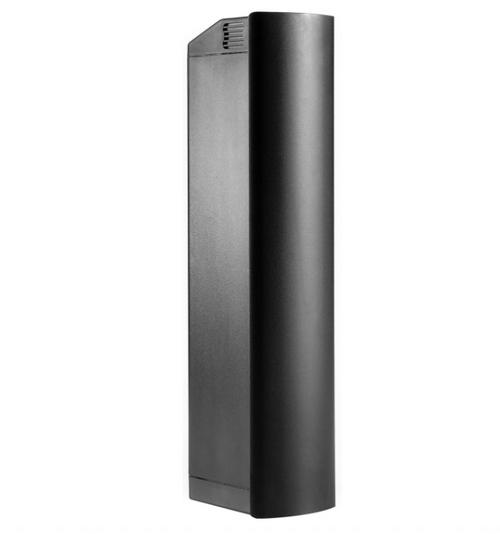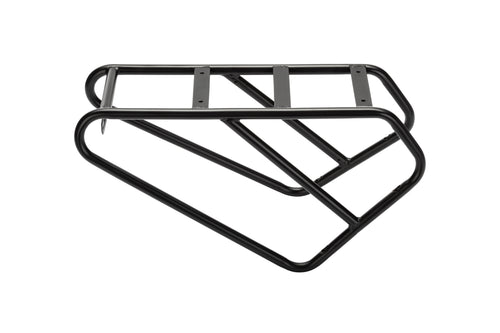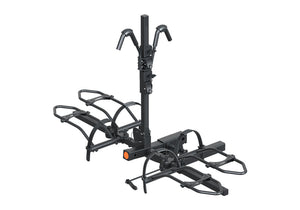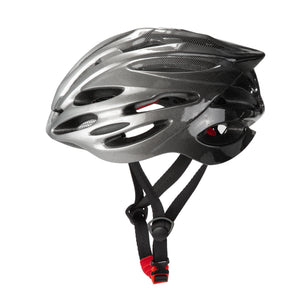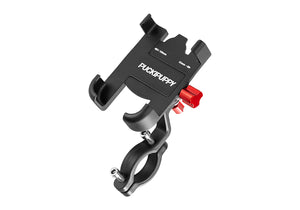With traffic congestion, limited storage, and rising transit costs, more people in 2025 are looking for smarter ways to get around. Folding bikes have become a popular solution—especially for commuters, travelers, and those living in tight spaces.
Modern models are lighter, more compact, and even come with electric assist. Many can be taken on public transport, stored in small apartments, or fit in car trunks—though this varies by design.
So, should you buy a folding bike in 2025?
This guide covers the benefits, trade-offs, and key options to help you decide if it’s the right fit for your lifestyle.
What Is a Folding Bike?
A folding bike is a type of bicycle designed to fold down into a compact form, making it easy to carry, transport, and store. Unlike traditional bikes, folding bikes feature special hinges or joints—usually in the frame, handlebars, and pedals—that allow them to collapse into a much smaller size in just a few seconds.
While they were once seen as a niche solution for occasional riders, modern folding bikes have come a long way. Today’s models are lighter, more durable, and more versatile than ever before, with many offering features like multiple gears, electric assist motors, and advanced folding mechanisms that can be operated quickly and securely.
● Compact Folding Design: Ideal for carrying on public transportation or storing in tight spaces like apartments, offices, or car trunks.
● Portability: Many models weigh between 20–30 pounds (9–14 kg), and some include carrying handles or travel cases.
● Quick Setup: Most bikes can be folded or unfolded in under 30 seconds.
● Diverse Options: From single-speed urban commuters to electric folding bikes with long-range batteries, there’s a model for every need.
Benefits of Owning a Folding Bike
Here are some of the key advantages:
1. Portability & Convenience
Folding bikes are built for movement — not just while riding, but when you're not riding. You can fold it up in seconds and carry it into a coffee shop, office, or apartment. No need to lock it outside or worry about theft. They also fit easily in elevators, buses, subways, or the trunk of your car.
2. Space-Saving Storage
Perfect for those living in small apartments or working in offices without bike racks. You can store a folding bike under your desk, in a closet, or even next to your bed — something that’s almost impossible with a standard bike.
3. Multi-Modal Commuting
Need to combine biking with public transport? A folding bike lets you do that seamlessly. Ride to the train station, fold it up, hop on board, and unfold it on the other side. It’s the ideal solution for “last-mile” commuting.
4. Travel-Friendly
Planning a weekend getaway or road trip? Many folding bikes are allowed on planes, trains, and buses without extra fees. Whether you're exploring a new city or traveling in an RV, a folding bike gives you freedom without taking up space.
5. Lower Risk of Theft
Since you can take it indoors, you significantly reduce the chance of theft — one of the biggest worries for urban cyclists. No more expensive locks or risky street parking.
6. Electric Options Available
Many folding bikes now come in electric versions, offering pedal-assist features and battery-powered rides. This makes longer commutes, hilly terrain, or hot weather much more manageable — without sacrificing portability.
7. Great for All Ages
With low step-through frames and easy handling, folding bikes are suitable for a wide range of users — from students and busy professionals to older riders who need comfort and control.
Read more: Best Fat Tire Electric Bike Under $2000
Are Folding Bikes Right for You?
Folding bikes aren’t for everyone—but they’re ideal for certain types of riders.
They might be right for you if:
● You commute in a city and need a bike that fits easily on public transportation or under your desk.
● You live in a small apartment or don’t have access to secure bike storage.
● You travel frequently and want a portable bike that fits in your car or RV.
● You value convenience over speed or high-performance riding.
They might not be the best choice if:
● You’re looking for a performance bike for long-distance rides or rough terrain.
● You prioritize ride comfort and stability—folding bikes usually have smaller wheels and a more compact frame.
● You don’t want to deal with folding and unfolding, especially with heavier electric models.
In short, folding bikes offer unmatched portability and flexibility, but they come with compromises in ride feel and speed. Think about your daily habits and space limitations before making the leap.
That said, if you’re also considering electric bikes, they offer another level of convenience—especially for longer rides or hilly routes. Brands like Puckipuppy provide user-friendly eBikes that combine comfort, performance, and sleek design for modern riders.

Folding Bike vs Traditional Bike
So, how does a folding bike actually compare to a traditional full-sized bicycle?While both serve the same core function, they offer distinct experiences when it comes to practicality, comfort, and performance.
Here’s a quick side-by-side breakdown to help you decide:
|
Feature |
Folding Bike |
Traditional Bike |
|
Portability |
✅ Easy to carry and store |
❌ Bulky, not easy to transport |
|
Storage |
✅ Fits in small spaces |
❌ Needs more room |
|
Comfort |
⚠️ Decent for short rides |
✅ Smoother for longer rides |
|
Performance |
⚠️ Less stable at high speeds |
✅ Better for speed and varied terrain |
|
Security |
✅ Can bring indoors |
❌ Often left outside |
|
Maintenance |
✅ Simple upkeep |
⚠️ May need more attention |
|
Best for |
City commutes, small homes |
Long rides, fitness, off-road use |
Which One Should You Choose?
If your lifestyle prioritizes convenience, storage, and short-range commuting, a folding bike is an excellent match — especially in dense cities or for multi-modal commuters.
On the other hand, if you value ride performance, comfort on long trips, or off-road capabilities, a traditional bike may serve you better.
Final Verdict
In 2025, folding bikes have become practical, convenient, and more advanced than ever. They’re perfect for city commuters, travelers, and anyone with limited storage space.
While they may not replace traditional bikes for long rides or performance cycling, folding bikes offer unmatched portability and flexibility.
If you value convenience and easy storage, a folding bike is definitely worth considering this year.
That said, if you're looking for more power or need to tackle hills and longer distances, an electric bike could be the better fit. Whether you're navigating city streets or exploring rugged trails, eBikes offer a more effortless ride and extended range.
Brands like Puckipuppy offer both commuter eBikes for everyday travel and off-road eBikes built for adventure—giving you even more options to match your lifestyle.
FAQ
How safe are folding bikes compared to traditional bikes?
Folding bikes are generally just as safe as traditional bikes, as long as they are well-built and properly maintained. Reputable brands use secure locking mechanisms and sturdy frames. Always ensure the bike is fully locked into riding position before use.
Are electric folding bikes much heavier?
Yes, electric folding bikes are typically heavier due to the motor and battery, often weighing between 35–55 lbs (16–25 kg). However, the added weight is balanced by motor assistance, which makes riding easier — especially on hills or longer trips.
How durable are folding mechanisms?
High-quality folding bikes are built with durable hinges and locking systems designed to withstand daily folding and unfolding. As long as you follow the manufacturer's instructions and avoid forcing the joints, the mechanisms can last for years with minimal issues.
Is it harder to ride a foldable bike?
Not really. While the smaller wheels and compact frame may feel slightly different at first, most people adjust quickly. Folding bikes are easy to handle for everyday use, though they may not be as smooth or fast as full-size bikes over long distances.








